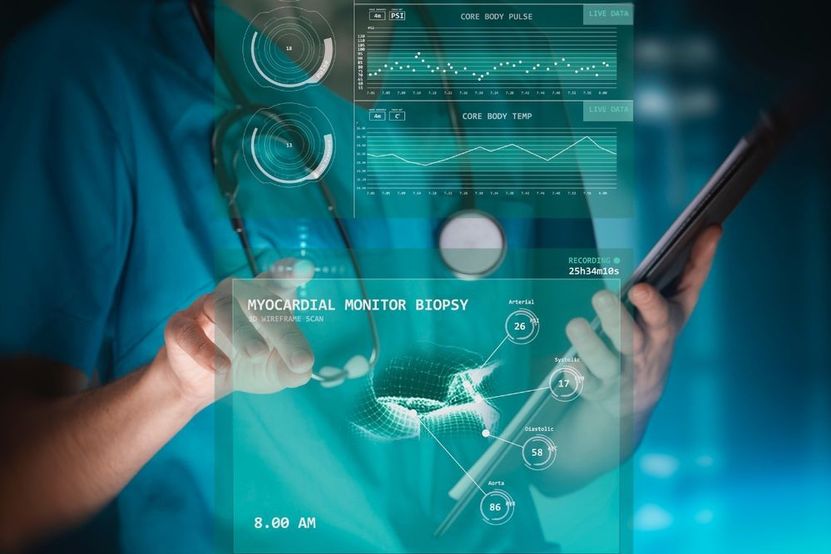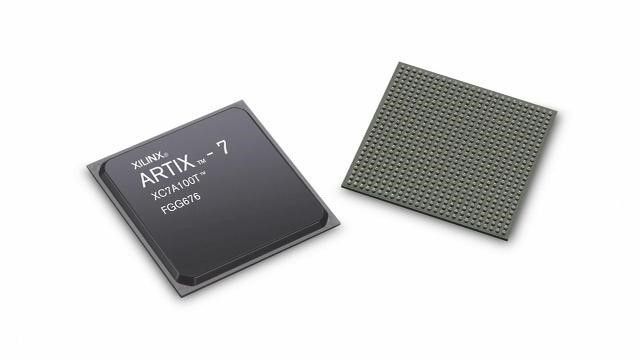This article was originally published on April 21, 2022
As we all grapple with the personal and professional challenges of living through a pandemic, what’s keeping many of us going are the inspirational stories of how communities and businesses are coming together to deliver technology and innovative solutions to help fight COVID-19 and support relief efforts.
We’d like to shine a light on several of our customers that are stepping up to develop and deliver products and services that are helping in the prevention, detection, and treatment of COVID-19 and other diseases.
The first is a leading health technology company to whom we’ve shipped thousands of Xilinx FPGAs to help meet the unprecedented demand for mission-critical patient monitoring systems. Next is the ground-breaking research being performed and enabled by a Chinese biotech company that is using Xilinx FPGAs to aid in the discovery, detection, and treatment of COVID-19. Last, but not least, learn about a breakthrough eye-tracking communication tablet from our customer that enables communication with patients that are unable to speak to help improve patient care and potentially save lives.
Philips and Xilinx respond swiftly to deliver vital patient monitors during Coronavirus pandemic
To meet the unprecedented demand for patient monitors during the ongoing COVID-19 pandemic—at least five times higher than the norm—our customer Philips has dramatically stepped up its production. Philips, in turn, tapped Xilinx to swiftly produce and deliver FPGAs to power vital patient monitoring equipment.

Xilinx supplied Artix-7 FPGAs and hands-on support to enable Philips to produce more IntelliVue Monitors, including portable, specialized and compact versions. These monitors are an especially critical component in the battle against the coronavirus, as every intensive care (IC) bed requires a monitor so clear information can be delivered to healthcare professionals treating patients.

Artix-7 FPGAs are ideally suited to for the IntelliVue Monitors, meeting the size, weight, low power and low-cost requirements for Philips, as well as other companies in the medical industry.
For Philips specifically, Artix-7 FPGAs deliver the low-power needed to create fan-less monitors, which need to be closed within hospitals for hygiene reasons. The low thermal output and the ability to perform under high temperatures is essential to Philips when producing its state-of-the-art, high-performance fan-less patient monitors with passive cooling. In medical devices, cooling fans are undesirable as fan blades accumulate dust and pathogens due to the cavitation effects when the fans are spinning. These microscopic dust particles and pathogens can break free and circulate along the air stream when the fan speed increases or decreases. Consequently, air streams created by fans can spread these particles over a wide area and contaminate different surfaces.
As well as addressing these hygiene requirements, the extended temperature grade of Artix-7 devices helps decrease the overall cost of the system.
Genetalks and Xilinx genomic analysis research accelerates prevention and treatment
When facing a severe pandemic such as COVID-19, rapid and accurate virus screening and detection is particularly important for maintaining control. Also critical is the development of new drugs and vaccines, which requires large amounts of data analysis and scientific computing.
Researchers at Chinese biotech company Genetalks, in conjunction with the Xiangya School of Medicine, Central South University, are using Xilinx FPGAs to accelerate the computation of genomic data analysis and effectively speed up research into drug selection and treatments. The solution is available on-premise on servers with Alveo U200 accelerators and on Alibaba Cloud using their FPGA-as-a-Service F3 instances.
Research involves using Xilinx-powered supercomputers to conduct genomic research into potential treatments and their associated risks, with the goal of reducing the timeline to a cure for COVID-19. The company recently concluded a study of the human genetic information against 67 potential COVID-19 drugs utilizing Xilinx FPGA accelerator cards and achieve the following results:
- Speeds up the genome-wide computing tasks of traditional servers by over 70x
- Identify 17 drugs that should be used with caution in some races
- Categorize at least 29 therapies with drug-drug interactions (DDIs)
- Recognize a preference for drugs target to ACEII such as chloroquine
As the research community continues to find solutions to diagnose and treat COVID-19 patients, FPGAs are helping to power the path forward to combat the current crisis and get ahead of the next one. To learn more about Genetalks' high-performance genomic computational acceleration system based on Xilinx FPGAs, join us for an on-demand webinar with Genetalks and Xilinx. Register here.
Xilinx powers EyeTech eye-tracking communications tablet for ER and ICU patient care
EyeTech, a global leader in Health AI, is using Xilinx Zynq UltraScale+ MPSoC, to power their EyeOn LifeLine eye-tracking communication tablet. Their innovative devices allow doctors, nurses and caregivers in emergency rooms and ICUs to easily and quickly communicate with patients who are unable to speak while confined to their hospital beds. Use cases include communicating with the medical care team while intubated, as well as communicating with remote friends and family while in isolation.
We’re excited to learn that the ground-breaking EyeOn LifeLine tablets are starting to make their way into medical facilities.

The stand-mounted tablet faces the patient who simply looks at word squares to express pain level or a request, and the tablet voices it through speakers for nurses and doctors. The tablet is ultra-portable allowing it to be utilized with multiple patients during this pandemic, to improve patient outcomes.
We applaud our customers Philips, Genetalks and EyeTech for their significant and potentially life-saving contributions to COVID-19 detection, treatment and relief efforts. It’s gratifying to know that our adaptive computing technology is playing a vital role with these customers and the global response and relief efforts. Keep up the good fight!